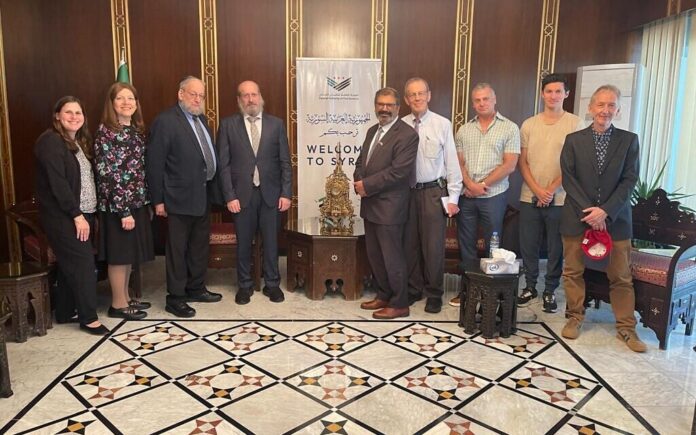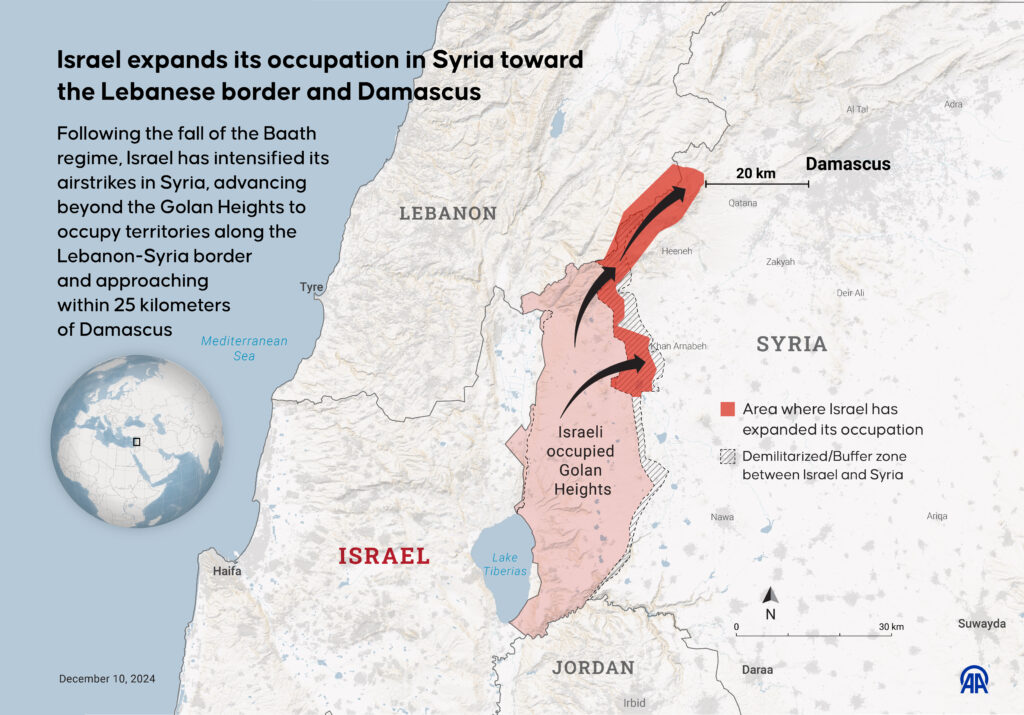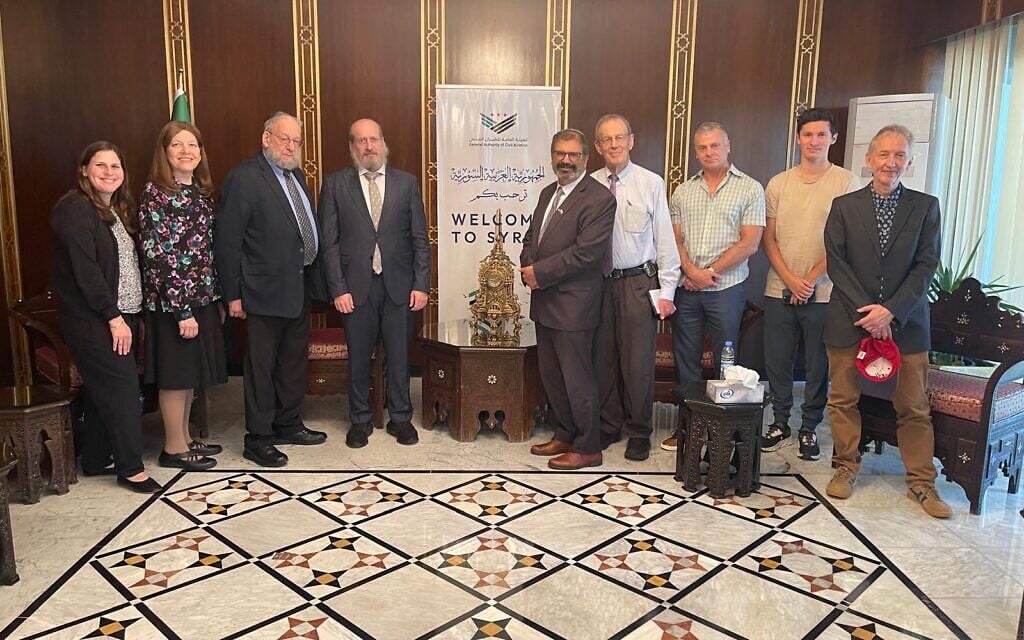 The Jewish Delegation in Damascus . David Horovitz is on the far right. Pic: Asher Lipton
The Jewish Delegation in Damascus . David Horovitz is on the far right. Pic: Asher Lipton
David Horovitz, editor of The Times of Israel, joined a Jewish delegation for a 48-hour visit to Damascus from September 15-16, despite a ban on Israeli passport holders entering the country.
Horovitz entered the nation under his British passport but says he clearly introduced himself as an Israeli journalist in his interactions with Syrian officials.
His trip was facilitated by American Rabbi Asher Lopatin and was approved by the Syrian Ministry of Foreign Affairs. He says he met several Syrian officials during his visit.
Horovitz, who wrote a lengthy article about his experience, was the only Israeli in a group of American Jewish scholars and rabbis.
He described the experience as “deeply surreal,” noting the warm welcome extended to an overtly Jewish group in a nation historically antagonistic to Israel.
“How is it,” Horovitz asked Rasha Ghannam of Syria’s Ministry of Foreign Affairs upon arrival, “that we are here — an overtly Jewish group including Orthodox rabbis and scholars — and that I am here?” Ghannam replied matter-of-factly, “Rabbi Lopatin submitted a request for a friendship visit. We looked at the goals. Syria is open to different religions and cultures. So we said yes.”
The delegation, including Professor Lawrence Schiffman of New York University, Rabbi Mendy Chitrik of Turkey’s Ashkenazi community, and Carl Gershman, former president of the National Endowment for Democracy, aimed to “build relations between Syria and American Jews, and other Jews,” according to Lopatin.
Sign up for regular updates straight to your inbox
Subscribe to our newsletter and stay updated on the latest news and updates from around the Muslim world!
 Following the fall of the Baath regime, Israel has intensified its airstrikes in Syria, advancing beyond the Golan Heights to occupy territories along the Lebanon-Syria border and approaching within 25 kilometers of Damascus. ( Murat Usubali – Anadolu Agency )
Following the fall of the Baath regime, Israel has intensified its airstrikes in Syria, advancing beyond the Golan Heights to occupy territories along the Lebanon-Syria border and approaching within 25 kilometers of Damascus. ( Murat Usubali – Anadolu Agency )
The group’s itinerary included visits to significant Jewish sites, underscoring Syria’s ancient Jewish history.
The highlight, said Horovitz, was a visit to the National Museum of Damascus, where 2,000-year-old wall paintings from the Dura-Europos synagogue, rediscovered in 1932, are preserved.
The visit included meetings with Syrian officials “eager to signal a new era of stability and inclusivity.”
Qutaiba Idlbi, director of American Affairs at the Foreign Ministry, emphasised Syria’s desire to reconnect with its Jewish diaspora. “We are trying to build a bridge to Syrian Jews in the diaspora,” he said.
However, Idlbi sharply criticised Israel’s actions, accusing Prime Minister Benjamin Netanyahu of “leading Israel into a period of international isolation” and citing 900 Israeli attacks inside Syria since December 2024.
“Since December 8, the Netanyahu government has been the main threat to Syria,” he charged, urging Israel not to target Syrian forces restoring calm in the south. Despite this, he expressed hope for “a peace deal based on the 1967 borders,” acknowledging “the October 7 trauma for the Israeli people.”
According to Horovitz, Economy Minister Mohammad Nidal al-Shaar underscored the urgency of Syria’s rebuilding efforts. “This is the only chance for Syria. If we don’t support this opportunity, Syria will be gone,” he warned, highlighting potential “terrible implications for Egypt, Iraq, Lebanon, and northern Israel.”
He urged the group to “convey to your American people what you have seen. Syria is friendly. It is open to anyone.”
Hind Aboud Kabawat, the only Christian and female minister, contrasted President Sharaa’s leadership with Assad’s. “You say ‘no’ [to Assad], and it’s your last day,” she said. “He [Sharaa] listens to us. We don’t have to say yes.”
Horovitz concluded: “The officials we met know this is a make-or-break period for Syria, that they don’t have much time to heal a broken nation… I’d had no idea what I’d encounter in Damascus — whether, despite printed assurances, they’d let me in; whether my making explicit in our meetings that I am the editor of The Times of Israel, a journalist from Jerusalem, would cause dismay or worse… Anything can happen at any time of course, but in our 48 hours, nothing adverse did.”
Add your comments below


